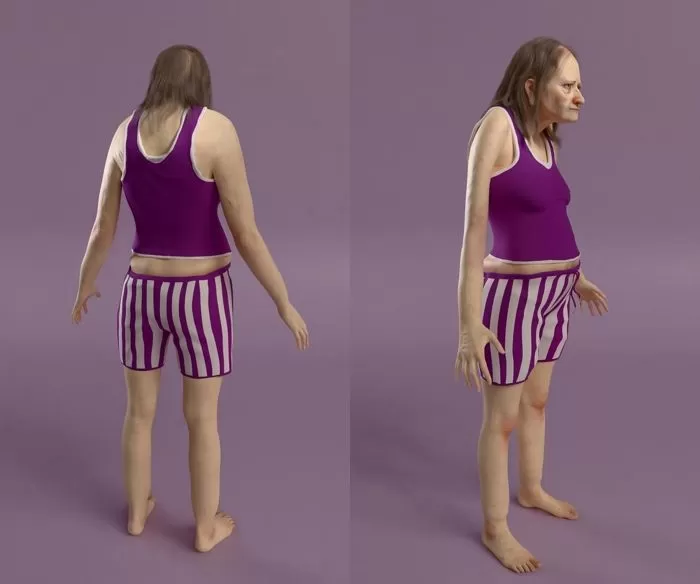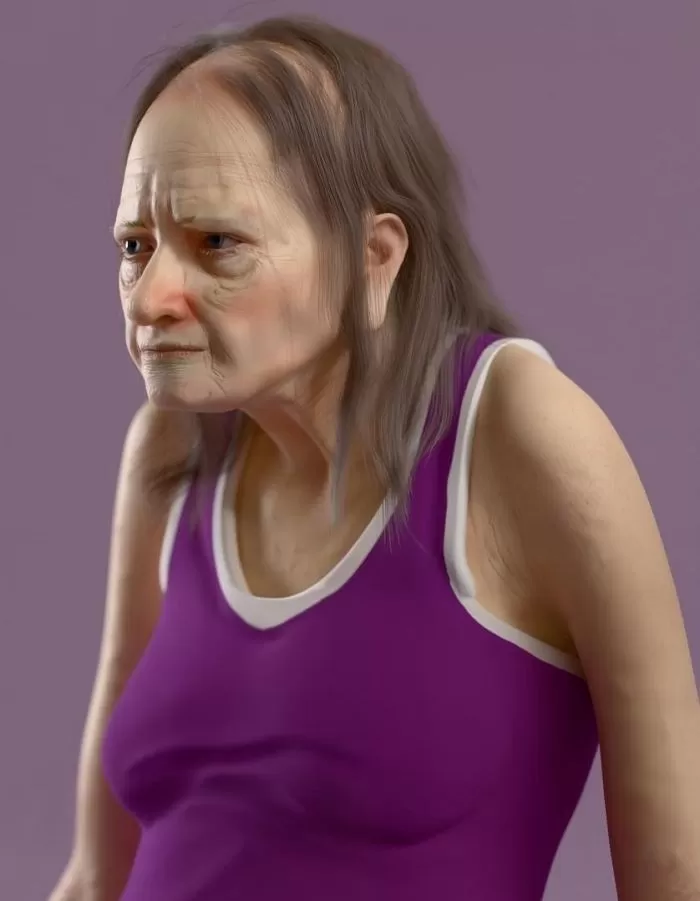
Many struggle with insomnia due to stress, fatigue, and busy lifestyles. If you find it hard to get a good night’s sleep, it’s crucial to address this issue through treatment or lifestyle changes. Ignoring the problem can lead to serious consequences — not just for your health but also your appearance.
According to a New York Post report, British bedding and mattress company Bensons for Beds has teamed up with sleep expert Dr. Sophie Bostock to create a powerful visual demonstrating the impact of 25 years of insufficient sleep. The rendering shows a woman named Hannah who sleeps less than six hours a night. By 2050, her appearance has dramatically changed. Her posture is slumped, her hair has thinned, and her skin shows significant signs of aging.

The image of Hannah was developed based on extensive research on the effects of chronic sleep deprivation. It serves as a cautionary tale for anyone who does not get enough rest and highlights the critical importance of sleep.
Dr. Bostock explained, “Hannah’s transformation is an example of how sleep impacts overall health and appearance. Research has shown that chronic sleep deprivation can increase the risk of diseases like obesity, heart disease, and type 2 diabetes, all of which can seriously affect heart health.”

In addition to the physical effects, a 2015 study found that chronic poor sleep quality accelerates signs of aging and weakens the skin’s barrier function, leading to lower satisfaction with one’s appearance. Over time, insufficient sleep can result in fine lines, wrinkles, puffy eyes, dark circles, and drooping corners of the mouth.
Sleep disorders can also lead to hair loss, which creates even more stress, fueling a vicious cycle. When we don’t get enough sleep, our bodies produce excess cortisol, the stress hormone. This contributes to hair loss and increases oil production, making the scalp greasy and the hair look limp.
Poor sleep also contributes to back and shoulder pain, which is why Hannah’s posture in the image appears slouched — a direct result of discomfort and lack of rest.

If you don’t get enough sleep, you’re also at risk for developing visceral fat. This harmful fat builds up around vital organs and is associated with metabolic disorders and insulin resistance. Sleep deprivation also disrupts the balance of hunger-regulating hormones leptin and ghrelin, increasing appetite. As shown in the image, Hannah has more fat around her abdomen and sides.
But the risks don’t stop there. Inadequate sleep can lead to metabolic dysfunction and a decrease in muscle mass. Even just a few nights of poor sleep can lower the rate of muscle protein synthesis in men, and muscle atrophy is visible in Hannah’s arms and legs.
Additionally, the image shows signs of ankle edema — swelling of the ankles, which can be a symptom of heart disease. Poor sleep habits can contribute to this condition, further stressing the importance of getting enough rest.
The recommended amount of sleep for adults is 7 to 9 hours per night. Anything less can increase your risk for numerous health problems.

Chronic sleep deprivation isn’t just about looking tired — it can affect your memory, immune function, and overall health. A weakened immune system makes you more susceptible to illnesses like the common cold or the flu.
Moreover, sleep deprivation has been linked to cognitive impairments, high blood pressure, diabetes, heart and kidney problems, depression, and increased inflammation levels. It can lead to a range of chronic health conditions, making it all the more important to prioritize your sleep.
Experts agree that adults should aim for 7 to 9 hours of sleep per night for optimal health. Your body and mind will thank you.










Most Commented